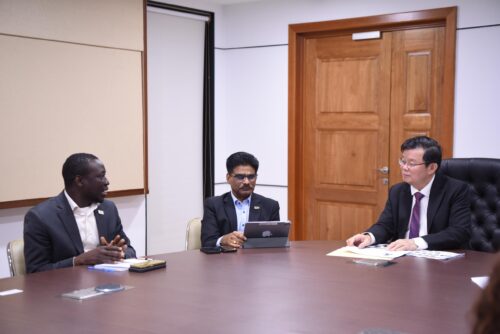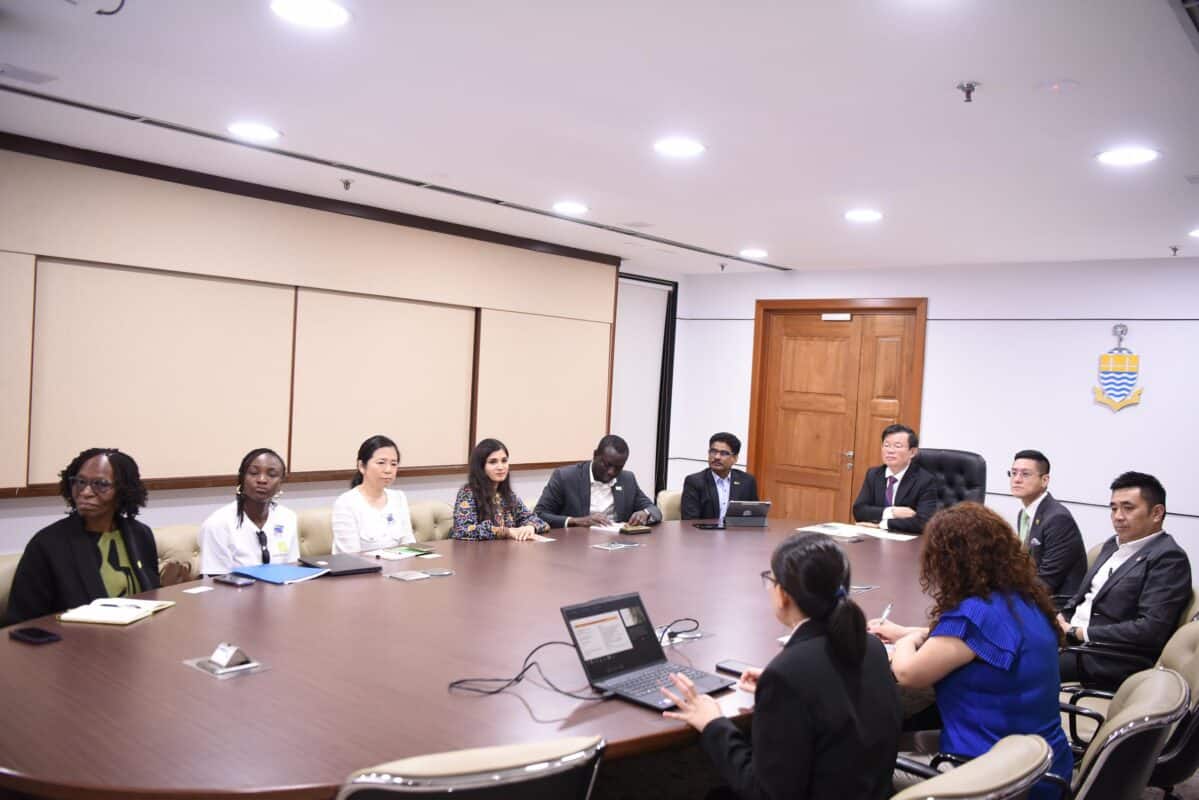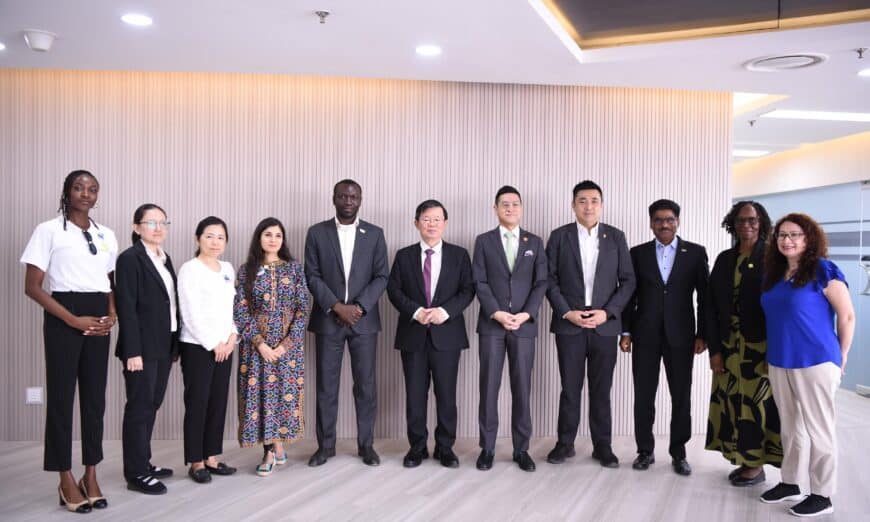PLEASED with the progress of the Penang Nature-Based Climate Adaptation Programme (PNBCap), UN-Habitat has encouraged the state to apply for funding from its Adaptation Fund for a similar initiative or other projects based on its priorities.
Justice Issah Surugu Musah, who led a UN-Habitat delegation on a courtesy call to Chief Minister Chow Kon Yeow at Komtar today, expressed his hope that Penang would continue submitting projects aimed at mitigating climate change.

“We are here to ensure that the fund is utilised to effectively reduce climate-related risks and generate meaningful impact for engagement with donors. Once the project concludes, the state government takes over, and we look forward to continued collaboration with Penang,” said Justice, a Ghanaian climate change specialist at the Adaptation Fund.
Justice has over a decade of experience in supporting developing countries in designing climate strategies and securing international climate finance.
Also present were his colleagues – Tolu Olusina (Nigeria), Alyssa Gomes (India), Yusun Lee (South Korea), Sithabiso Gandure (South Africa), Oddy Angelo Barrios (Bolivia), and Kwa Soo Chen (Malaysia) – along with state Housing and Environment Committee chairman Datuk Seri Sundarajoo Somu, state Transport and Infrastructure Committee chairman Zairil Khir Johari, and state Local Government and Town & Country Planning Committee chairman Jason H’ng Mooi Lye.
Under the Adaptation Fund, established under the Kyoto Protocol of the UN Framework Convention on Climate Change, a grant of US$10 million was approved for PNBCap on 23 February 2022.
Alyssa highlighted that if there is a need to scale up aspects of the project, further funding could be considered.
“The project definitely has innovative elements. We have seen a lot of work put into it. The level of detail and care invested is quite inspirational. We have high expectations and look forward to further supporting you,” Alyssa said.

With PNBCap spanning five years, Chow emphasised that the funding has helped advance the Penang2030 vision of a Family-Focused Green and Smart State that Inspires the Nation.
“First, let us prove our worth by implementing the project successfully. We have learned valuable lessons, such as the choice of trees and soil conditions, which we can share with other parts of the world,” Chow said.
Sundarajoo noted that both the Penang Island City Council and the Seberang Perai City Council possess strong landscape departments.
“Tree selection is crucial, both for foliage and maintenance. Planting inappropriate trees can have immediate adverse effects. Deep-rooted trees with extensive foliage can obstruct storm drains and lead to flash floods. However, the right trees can act as natural filtration systems while providing excellent coverage,” Sundarajoo explained.
Kwan, the local project manager for PNBCap, briefed attendees, stating that George Town and Bayan Lepas were the two urban areas selected for the project, which began in 2022 and will conclude in 2027.
She outlined the project’s key objectives, which include reducing surface temperatures and stormwater runoff, increasing social resilience, and strengthening institutional capacity through nature-based solutions.
“We hope that once the project is completed, it can serve as a model for Malaysia in implementing nature-based solutions,” Kwan said.
Story by K.H. Ong
Pix by Adleena Rahayu Ahmad Radzi

